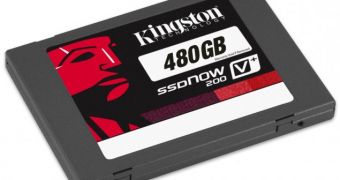LSI bought SandForce a while ago and it has already figured out how to improve the solid-state drive controller processor series that are already available.
It is the SandForce SF-2200/2100 Client Flash Storage Processors that have earned their spot in the headlines this time.
From now on, every new SF-2141, SF-2241 and SF-2281 chip will run on less energy and manage data stored on SSDs better.
That means that solid-state drives of 24 GB to 512 GB will move data faster and boot the operating system in fewer seconds than usual, all the while using less energy than before.
LSI's move is meant to improve the odds of SandForce-powered SSDs on the Ultrabook market.
SSDs are the ideal storage solution for such laptops, being thin and fast enough for their needs, but their prices have made it difficult for the product type to take off.
It doesn't help that SandForce-based models are usually more expensive than the competition. The speed advantages are there, but that doesn't really matter much when customers care more about how their chosen SSD compares to HDDs instead of others of their kind.
“Client computing customers are increasingly turning to the benefits of flash-based products to accelerate application performance and deliver an enhanced user experience,” said Jim Handy, SSD analyst for Objective Analysis.
“With their high performance and sleek, lightweight designs, Ultrabooks are experiencing strong growth, and the power and performance benefits enabled by flash storage processors such as LSI’s SandForce FSPs are a key part of the appeal.”
LSI promises that ultrabooks with SF SSDs will last for up to one hour longer on a single battery charge, but it doesn't mention any price cut. Hopefully, storage companies will figure something out on their own. If not, there's always the choice of HHDs (hybrid HDDs).

 14 DAY TRIAL //
14 DAY TRIAL //